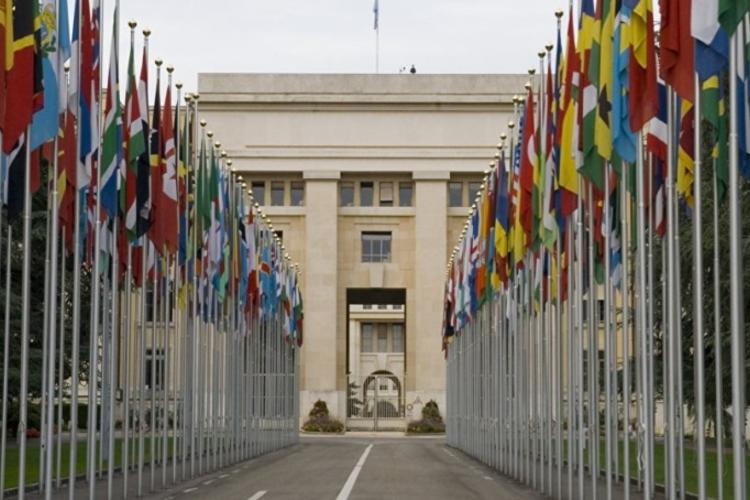Pertaining to the results of the 43rd round of the Geneva International Discussions
March 27-28, 2018 saw a regular round of the Geneva International Discussions on Security and Stability in Transcaucasia. A delegation from the Republic of South Ossetia, headed by Murat Dzhioev, the Plenipotentiary of the President of the Republic of South Ossetia on post-conflict settlement, delegations from the Republic of Abkhazia, Georgia, the Russian Federation and the USA as well as representatives of the EU, the UN and the OSCE took part in negotiations.
As usual, the discussions were held in two working groups: on security and humanitarian issues.
In their opening speech representatives of the Republic of South Ossetia addressed the Russian participants with words of condolence on the occasion of the tragedy in Kemerovo, which resulted in numerous human casualties.
The main attention in Working Group I was paid to the discussion of draft joint statement of the participants on commitment to the principle of non-use of force, which would be a constructive contribution to further work on development of the agreement, guaranteeing security of South Ossetia and Abkhazia from Georgia and providing creation of regional security and stability system. Representatives of the USA suggested including in the draft statement knowingly inacceptable alterations, which were inconsistent with the format and ambiance of the GID, and brought to nought the attempts to rebuild trust, that had been done at numerous previous rounds. The work on the statement of the participants will be continued at the next round.
During the discussion on security the Georgian party attempted to use the death of Georgian citizen Archil Tatunashvili, who had died in Tskhinval, for making demagogic allegations against South Ossetia. In its turn the South Ossetian party introduced its substantial position regards the groundless accusations and stated that the death of Mr. Tatunashvili should not be used for political frame-up and rude provocations, made by the Georgian party.
During the discussion on stability and security about the border between South Ossetia and Georgia, the participants marked the absence of serious incidents. At the same time facts of violation of the South Ossetian state border by the EUMM members, which have several times taken place recently, were noted. In this regards the South Ossetian delegation has once again urged the Georgian party to get to joint works on delimitation and demarcation of the state border between the Republic of South Ossetia and Georgia.
Members of the South Ossetian delegation have once again expressed concern over the on-going pulling of Georgia into NATO military operations in the region. It’s obvious that such development of the affairs run counter the numerously voiced Georgian commitments to reconciliation and aspirations to resolve the existing disputes peacefully.
As an important factor for maintaining security and stability at the South Ossetian-Georgian border, the productivity of the IPRM in general and the “hot line” in particular was marked. At the same time the counterproductive activity of Georgian participants in sabotaging the IPRM meeting on March 1 was noted.
Despite the attempts made by Georgian side to escalate the situation related to imposing the artificial accusations, a detailed discussion on range of important issues, including the issue of the Ossetians, lost in the territory of Georgia, took place in Working group II. According to representatives of the OSCE, the independent expert on search of the unaccounted for will continue his mission in South Ossetia. Alongside with this the South Ossetian party again drew the most serious attention to the fact that Georgia has seriously been violating human rights of the Ossetians, natives of the Kazbegi region (Tyrsygom), who have been banned from visiting their ancestral villages over years.
During the discussion on enforcement of rights to education of ethnic minorities the South Ossetian participants have drawn attention to the educational policy of Georgia, which roughly violates its obligations under the Convention on the protection of minorities and concentrates on assimilation of the non-Georgian population.
During the discussion on cultural heritage, once again the attention was drawn to the problem of preservation of the Ossetian historical-cultural monuments located in the territory of Eastern Ossetia, which currently is under Georgian control.
The problem of refugees wasn’t discussed within the round, as renewal of negotiations on this subject would become possible only when Georgia gives up turning artificially the problem into a political issue.
The next meeting in Geneva is scheduled for June 2018.
March 29, 2018, Geneva
